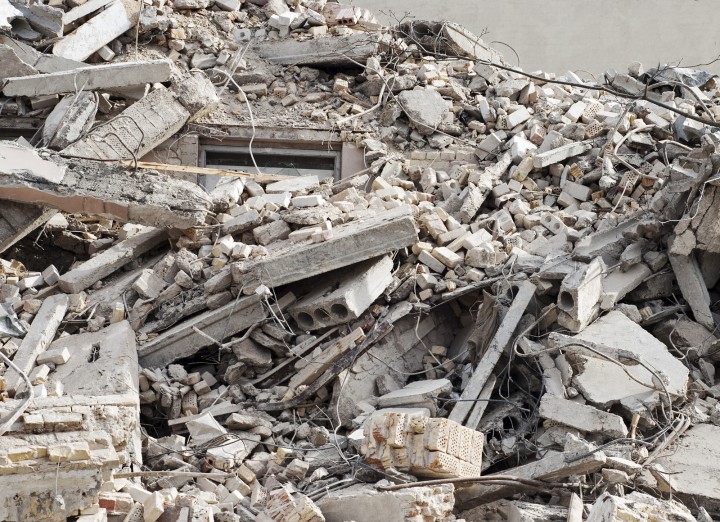
Australia faces a substantial challenge in managing construction waste, with the building industry annually generating 27 million tonnes of waste, of which 44% originates from the construction and demolition sectors. Addressing this issue is crucial, and exploring how to manage construction waste effectively becomes paramount for mitigating the environmental and economic implications associated with this prevalent challenge.
Ensuring sustainable development and reducing the ecological footprint in the construction industry requires effective waste management. Implementing responsible waste disposal practices is crucial, and understanding how to manage construction waste is essential for mitigating environmental impact and conserving valuable resources.
The purpose of this article is to shed light on key strategies for responsible construction waste disposal in Australia. By emphasising recycling, reuse, hazardous waste management, landfill reduction, and collaboration, we aim to guide construction professionals towards sustainable practices.
Additionally, we’ll explore the specific challenges faced in Western Australia and the measures taken to address them.
Key Strategies for Construction Waste Management in Australia
Optimise your construction waste management in Australia with these essential strategies:
- Recycling
Construction materials like concrete, stone, timber, glass, and metals can be recycled, reducing environmental impact and promoting resource conservation. Recycling construction materials not only minimises waste but also contributes to reduced environmental impact through the conservation of resources. - Reuse
Construction waste, including rock and soil fill, asphalt, bricks, metals, and timber, can be reused, providing economic and environmental advantages. Reusing construction waste minimises the need for new materials, thereby conserving resources and reducing the environmental footprint of construction activities. - Hazardous Waste Management
Recognising hazardous materials like mercury, lead, and asbestos in construction sites is essential for proper handling and disposal to prevent pollution. Ensuring the safe disposal of hazardous materials is crucial for preventing environmental contamination and protecting the health of workers and the community. - Landfill Reduction
Construction waste in landfills poses significant environmental challenges, emphasising the need for reduction strategies. Australia is committed to reducing the amount of construction and demolition waste sent to landfills, promoting sustainable practices and encouraging the use of recycled materials. - Collaboration
Collaboration between the construction industry, waste management companies, and government agencies is crucial for effective waste management. The National Waste Policy focuses on waste avoidance, resource recovery, and the use of recycled materials, underlining the importance of a unified approach to waste management.
Construction Waste Management in Western Australia
Optimal handling of construction waste is imperative in Western Australia due to various factors, including:
- Limited Guidance
In Western Australia, inconsistent waste management guidance poses challenges for construction activities, leading to varied approaches and increased development costs. Divergent approaches by local government and the private sector can result in increased costs for development projects in Western Australia. - State Waste Strategy
Western Australia’s State Waste Strategy aims to provide consistent guidance on waste management in construction activities. Consistent waste management guidance helps streamline processes, reduce costs, and promote sustainable practices in the construction industry. - Construction and Demolition Waste Management Plan
The Western Australian Local Government Authority (WALGA) has developed a Construction Waste Management Plan to guide local governments and the private sector. WALGA’s plan plays a crucial role in guiding local governments and the private sector towards effective construction waste management practices. - Sustainability
Recycling construction waste contributes to responsible waste management, aligning with sustainability requirements on all projects. There is a growing requirement for sustainability in construction projects, emphasising the need for responsible waste management practices. - Resource Recovery
Viewing construction waste as a resource highlights its potential value in contributing to sustainable practices. Maximising resource recovery in waste management solutions enhances sustainability and efficiency in the construction and demolition sector.
Challenges in the Construction and Demolition Waste Management Sector
These are challenges in the construction and demolition waste management sector, including:
Technological Limitations
The construction and demolition waste management sector faces technological challenges that can impact efficient waste disposal and recycling. Addressing technological limitations is crucial for ensuring the effective disposal and recycling of construction and demolition waste.
Social, Economic, and Political Issues
Broader societal, economic, and political challenges influence construction waste management practices. Addressing these challenges is essential for implementing effective and sustainable construction waste management practices.
Attitudinal Approaches
Examining attitudes within the industry is vital for understanding and addressing challenges in waste management. Fostering positive attitudes is key to achieving effective waste reduction in the construction and demolition sector.
Benefits and Limitations of Construction Waste Management Solutions
These are the benefits and limitations of construction waste management solutions, such as:
- Different Solutions
Implementing proper supervision, guidelines, accurate design, and documentation are essential for effective waste management. Innovative decisions and life cycle management of waste contribute to comprehensive waste management solutions. - Benefits
Implementing effective waste management solutions yields economic, environmental, and societal advantages. The positive outcomes of responsible waste management extend to economic savings, reduced environmental impact, and enhanced societal well-being. - Limitations
It’s crucial to acknowledge challenges and potential drawbacks in waste management solutions. Identifying strategies to mitigate limitations ensures successful and sustainable construction waste management.
Empowering Steps Toward a Sustainable Construction Future
Highlighting the importance of construction waste management in Western Australia is imperative for creating a sustainable and environmentally conscious construction industry. Encouraging the construction industry to prioritise sustainability is essential for fostering responsible waste management practices.
Emphasising the need for building waste removal services further encourages the industry to actively engage in responsible waste disposal, contributing to cleaner worksites and a healthier environment. Promoting skip bin hire near me by Coastal Waste Management provides a practical solution for construction sites to responsibly manage our waste, aligning with the overarching goals of this article.
By taking these steps, the construction industry can play a pivotal role in reducing its environmental impact, contributing to a more sustainable future for Australia.

